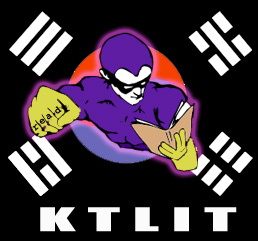 On March 24th, Korean author Hwang Sun-mi came to the 10 Magazine Book Club (which, if you don’t follow on Facebook, you should) and was interviewed bilingually (well, that means there was an interpreter). The conversation was wide-ranging and frank as Hwang talked a little about the origin of her work The Hen Who Dreamed She Could Fly (Which was translated by Chi-Young Kim, without a doubt the most commercially successful translator of Korean fiction in the last decade). and how writing the book conflicted with her personal life, as the book’s main character, although a hen, was modeled on her father, who was on his deathbed at the time.:
On March 24th, Korean author Hwang Sun-mi came to the 10 Magazine Book Club (which, if you don’t follow on Facebook, you should) and was interviewed bilingually (well, that means there was an interpreter). The conversation was wide-ranging and frank as Hwang talked a little about the origin of her work The Hen Who Dreamed She Could Fly (Which was translated by Chi-Young Kim, without a doubt the most commercially successful translator of Korean fiction in the last decade). and how writing the book conflicted with her personal life, as the book’s main character, although a hen, was modeled on her father, who was on his deathbed at the time.:
Here is the interview:
If you’ve been living under a rock and don’t know about this Korean novel, it was an Amazon Book of the Month in November, about which Amazon said:
You could read the adventures and struggles of Sprout, an egg-laying hen who escapes the coop with dreams of hatching her own chick, as a straightforward children’s book. But just like all enduring classics, peel back a few layers and The Hen Who Dreamed She Could Fly easily transcends the just-for-kids label by deftly tackling universal themes of individuality, nurturing the young, the cycle of life and death, the meaning of friendship, and the eternal parent-child bond. This English-language translation of the best-selling Korean novel is sparse and economical as befitting the fable-like tale, allowing phrases and moments to breathe with emotion. You’ll root for Sprout as she pluckily faces the elite barnyard coterie for a place to rest her head or as she tirelessly guards her baby from a hungry, conniving weasel. Anyone who is a parent–or has ever been loved by one–will find a moment (or two) where it’s hard to keep the tears at bay. —Bora McAteer
As to the reaction to the in English translation, Hwang expressed surprise, as it was first translated into Asian languages, which did not elicit much response in Korea^^, but when it was translated into English it got more response here in Korea.
Hwang also discussed less personal issues, such as the role of Korean literature, her writing, and the effects that voice actors have when a novel is turned into an animation.
Hwang was alternately contemplative, funny, and poignant, and the whole the interview is worth watching.
If your bandwidth is weak (i.e. you liev outside Korea^^) he sound link is here


